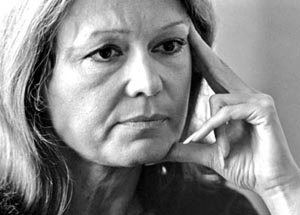Apr 14, 2025
Apr 14, 2025
by Ammu Joseph
 "Biology isn't destiny, and it isn't a free pass either." Gloria Steinem, 72, journalist, author and glamorous grande dame of global feminism has clearly not lost her well-known talent for aphorisms.
"Biology isn't destiny, and it isn't a free pass either." Gloria Steinem, 72, journalist, author and glamorous grande dame of global feminism has clearly not lost her well-known talent for aphorisms.
17-Mar-2007
More by : Ammu Joseph